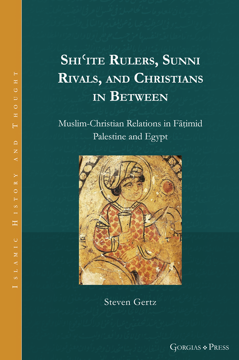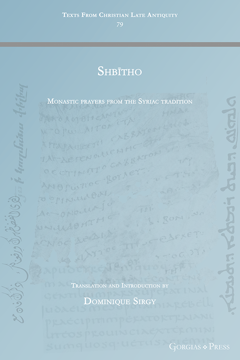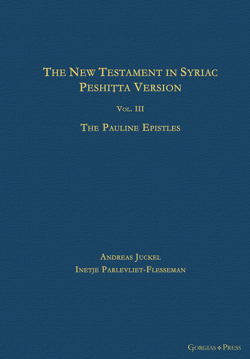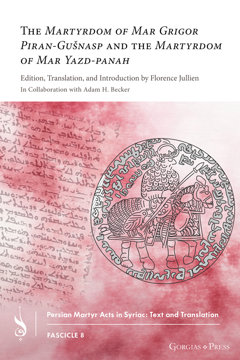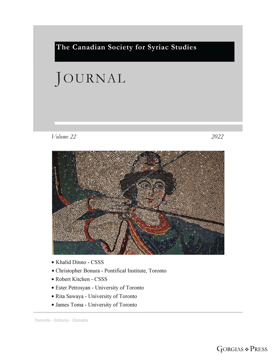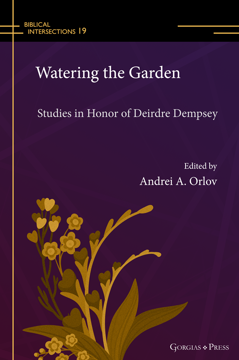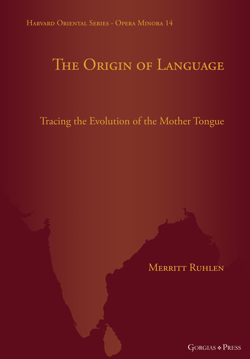Shiʿite Rulers, Sunni Rivals, and Christians in Between
Muslim-Christian Relations in Fāṭimid Palestine and Egypt
By Steven Gertz
Series: Islamic History and Thought 32
ISBN: 978-1-4632-4473-6
A historical study of the Fāṭimid caliphate in Palestine and Egypt during the fourth/tenth and fifth/eleventh centuries.
$95.00 (USD) $76.00 (USD)
Shbītho
Monastic prayers from the Syriac tradition
Translation and Introduction by Dominique Sirgy
Series: Texts from Christian Late Antiquity 79
ISBN: 978-1-4632-4475-0
The Shbītho d-Dayroye is a thirteenth-century anthology dedicated to the personal prayer of monks and nuns. The collection comprises the writings of great saints in the Syriac Orthodox tradition including Ephrem the Syrian, Abraham Qidun, John Chrysostom, Gregory of Nazianzus, Philoxenos, Basil the Great, and Isaac the Syrian. For each of the seven daily prayer times (morning, third hour, noon, ninth hour, evening, and night), there is a main prayer and a closing prayer. The present edition is the first translation to make the spiritual treasures of the original Syriac text available to readers in English.
$45.00 (USD)
The New Testament in Syriac. Peshitta Version
Paul
ISBN: 978-1-4632-4479-8
More than one hundred years after the publication of the BFBS volume of the Peshitta NT (1920), a critical edition of the Praxapostolos is still a desideratum. This edition fills the gap for the Corpus Paulinum. It expands the collations of the Scottish scholar John Pinkerton (1882–1916) up to some 60 manuscripts, incl. 5 lectionaries and 7 ‘masoretic’ manuscripts; it is based on the (slightly modified) BFBS text, which was established by the majority vote of Pinkerton’s collated manuscripts. The present edition turns the editorial principle of ‘majority vote’ into a textual history, considering the East-West-bifurcation of textual traditions, and the development of the Textus receptus by standardization. 9 printed editions are included, among which are 6 of the Textus receptus (incl. the editio princeps of 1555), thus covering the transmission of the Corpus Paulinum from the beginnings up to the 16th century.
$156.00 (USD)
The Martyrdom of Mar Grigor Piran-Gušnasp and The Martyrdom of Mar Yazd-panah
Translation and Introduction by Florence Jullien; In Collaboration With Adam H. Becker
ISBN: 978-1-4632-4487-3
In the mid-6th century, Grigor, the general of the Sasanian king’s armies and a converted from Zoroastrianism to Christianity, was put to death. This event brings about the conversion of several Zoroastrian notables such as Yazd-panāh, a judge who also died as a martyr three years later, and the courtier ʿAwira. The reign of King Khusrō I (531–579) was a key-chapter in the history of the Persian Empire, but also for the Church of the East, some members of which were involved in the Sasanian administration. These East-Syrian historical texts, which are among the few passions of this period in Syriac, have received little scholarly attention. This volume offers a critical text and commentary, as well as the first translation into English of these two martyr texts. Written by contemporaries, they provide valuable information regarding socio-religious life and the political context. They demonstrate how Persian Christians, despite sporadic persecution, were able to maintain a distinct identity while simultaneously acculturating to the norms of Iranian society.
$75.00 (USD) $60.00 (USD)
Investigating the Text-Hierarchical Structures and Composition of Numbers
By Gyusang Jin
ISBN: 978-1-4632-4483-5
The structure of the Book of Numbers and its division into textual units has long been of interest to scholars, and various theories have been put forward based on criteria such as time, location or theme. The present volume offers a syntactic-hierarchical analysis of the Book of Numbers, giving priority to syntax and secondary priority to participants and their roles.
$114.95 (USD) $91.96 (USD)
A Reader in Syriac Based on the Entertaining Stories of Gregory Bar ʿEbrāyā
Series: Gorgias Handbooks 57
ISBN: 978-1-4632-4489-7
Thirty short reading selections from the Book of Entertaining Stories of Gregory Bar ʿEbrāyā, with an analysis of the grammar and vocabulary of the texts.
$47.50 (USD) $38.00 (USD)
Journal of the Canadian Society for Syriac Studies 22
Edited by Amir Harrak
ISBN: 978-1-4632-4491-0
A refereed journal published annually by the Canadian Society for Syriac Studies.
$75.00 (USD) $60.00 (USD)
Watering the Garden
Studies in Honor of Deirdre Dempsey
Edited by Andrei A. Orlov
Series: Biblical Intersections 19
ISBN: 978-1-4632-4493-4
The essays collected in Watering the Garden are intended to honor Deirdre Dempsey, a distinguished biblical educator, translator, and scholar. The contributions to this Festschrift mirror Dempsey’s own scholarly interests, including biblical studies, with particular attention to the Old Testament and intertestamental literature, the theology of visual arts, the history of spiritual traditions, and modern theology. The content of the Festschrift closely follows Dempsey's own spiritual and scholarly journey and reflects the breadth and scope of her influence on the academy.
$114.95 (USD)
The Origin of Language
Tracing the Evolution of the Mother Tongue
Series: Harvard Oriental Series - Opera Minora 14
ISBN: 978-1-4632-4495-8
What can the classification of languages tell us about human origins and human prehistory? This book presents a popular account of the origin of language. It is intended for an audience with no prior knowledge of comparative linguistics, genetics or archaeology. The present volume is a reprint of the 2009 second edition of the book, and includes the text of the first edition (1994) with minor modifications, as well as the scientific evidence for monogenesis, and a Postscript recounting developments in the field since the original publication of the book.
$75.00 (USD) $60.00 (USD)
Coherence of the Incoherence
Between Al-Ghazali and Ibn Rushd on Nature and the Cosmos
Series: Islamic History and Thought 33
ISBN: 978-1-4632-4497-2
The debate recorded in al-Ghazālī’s Incoherence of the Philosophers, and Ibn Rushd’s response in Incoherence of the Incoherence, is one of the most philosophically interesting events in the history of classical Islamic thought. Here, the cutting edge of Ghazālī’s searching critique meets the depth of Ibn Rushd’s philosophical insight in a clash over the innovative synthesis of Aristotelian and Neo-Platonic thought represented chiefly by Ibn Sīnā. This critical commentary closely analyses and evaluates the arguments deployed by all three parties in the debate, wherein are raised questions about the origin of the universe and the reality of time, possibility, causality, and nature. Where opportunities arise, it actively engages in the discussion by suggesting alternative arguments and philosophical directions. It goes beyond the cliché construal of the Incoherence debate as simply a conflict between faith and reason, exposing it as a genuinely philosophical enterprise and a potential source of fresh perspectives on contemporary discussions in metaphysics and analytic theology.
$114.95 (USD) $91.96 (USD)
